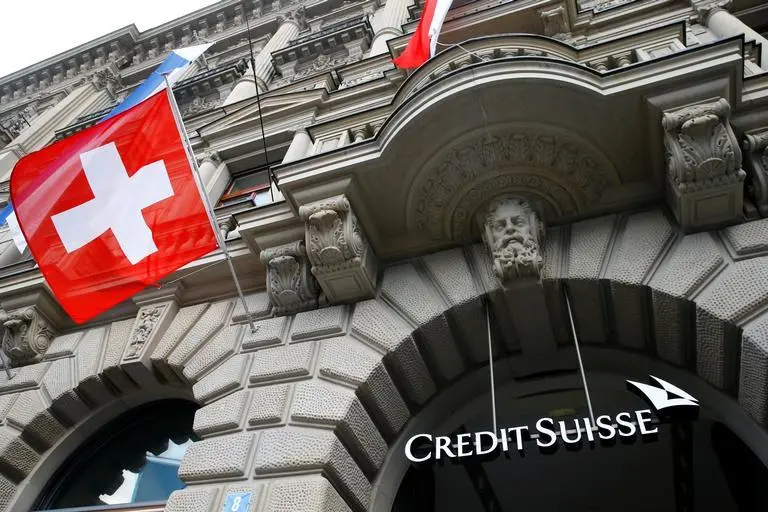PHOTO
LONDON - Europe’s investment banking also-rans are showing a turn of pace. Both BNP Paribas and Credit Suisse reversed their perennial underdog status and posted better-than-feared trading revenue during the second quarter, in contrast to U.S. rivals who posted steep falls. Rival Deutsche Bank’s plight and a steady rate of euro-denominated debt issuance could help preserve the renewed vigour of CEOs Jean-Laurent Bonnafé and Tidjane Thiam.
With the exception of UBS, European lenders with large trading units have long traded at a discount to tangible book, due to low profitability and lost market share to U.S. banks. On Wednesday, Credit Suisse reported an 8% year-on-year rise in fixed income and equities revenue, while BNP’s was nearly flat on an underlying basis. Given U.S. banks posted an average 7% and 8% drop in quarterly fixed income and equities trading revenue, both lenders may have gained market share at the expense of Wall Street peers.
Toppy equities markets, bumper European bond issuance helped by increasingly negative rates and Deutsche’s exit from equities trading are all tailwinds, particularly the opportunity to capture some of the German lender’s well heeled asset management clientele. This so-called “prime services” niche in equities has been a growth bright spot in an otherwise broadly stagnant sector: global revenue in the sub-division grew by 5% annually over the past five years to $18.3 billion in 2018, according to Coalition data, even as overall trading revenue fell.
BNP said it has struck a preliminary agreement to take on Deutsche’s prime finance clients. It could use the help more than Credit Suisse: over the first half, BNP’s equities revenue declined by 22% year on year. True, that was offset by an increase in the top-line from bonds. But the French bank can also take a page out of Credit Suisse’s book when it comes to traders’ costs: first-half operating expenses fell by 2% year-on-year in the global markets business, versus a 9% drop in the latter.
Respectable group returns on tangible equity of around 10% mean Credit Suisse and BNP shares should trade at around tangible book, assuming a 10% cost of capital, rather than 0.8 and 0.6 times respectively. If they can repeat their second-quarter surge a few times, the discount could close.
CONTEXT NEWS
- BNP Paribas on July 31 reported second quarter pre-tax profit of 3.4 billion euros, down 2.2% from a year earlier. Revenue rose by 0.2% over the same period to 11.2 billion euros.
- The Paris-based lender’s corporate and institutional banking division, which includes the investment bank, reported a 6% increase in pre-tax profit to 1 billion euros on revenue which rose by 4% year-on-year to 3.1 billion euros.
- BNP’s common equity Tier 1 capital ratio was 11.9%, compared to 11.7% three months earlier. The bank reported an annualised return on tangible equity of 11% for the quarter, down from 11.2% in the second quarter of 2018.
- Separately, Credit Suisse on July 31 reported a 24% year-on-year rise in second-quarter pre-tax profit to 1.3 billion Swiss francs. Net revenue was broadly flat at 5.6 billion Swiss francs.
- Credit Suisse’s trading division delivered a $359 million pre-tax profit, up 141% from the same quarter a year earlier, on revenue that rose by 8% year-on-year to $1.6 billion.
- The Zurich-based bank’s common equity Tier 1 capital ratio, assuming full implementation of Basel rules, was 12.5%, down from 12.6% three months earlier.
- The bank made an annualised return on tangible equity of 9.7% over the quarter, compared to 6.9% during 2018.
- BNP shares had risen 3.5% to 43 euros and Credit Suisse shares were up 4% to 12.2 Swiss francs as of 0750 GMT on July 31.
(Editing by George Hay and Karen Kwok)
© Reuters News 2019





















